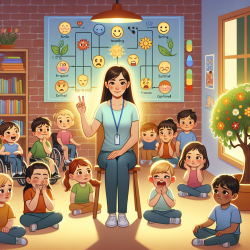The COVID-19 pandemic has been a catalyst for change across various sectors, including education. A recent study titled ‘Professor Moms’ & ‘Hidden Service’ in Pandemic Times sheds light on the gender disparities experienced by faculty members during the onset of the U.S. COVID crisis. The research highlights the increased support and accommodations provided by women faculty compared to their male counterparts, reflecting broader gender inequities in academia.
The Role of Women Faculty During the Pandemic
The study found that students perceived women faculty as more supportive and accommodating during the initial lockdown period. This perception aligns with the concept of "hidden service," where women are often expected to perform emotionally demanding care work that goes unrecognized and unrewarded. Such tasks include mentoring, providing emotional support, and making course accommodations—activities that require significant time and energy.
Implications for Practitioners
For practitioners in educational settings, understanding these dynamics is crucial for fostering a more equitable environment. Here are some strategies to consider:
- Acknowledge Hidden Service: Recognize and value the invisible labor performed by faculty, particularly women. This acknowledgment can lead to more equitable workload distribution and support for career advancement.
- Implement Supportive Policies: Develop policies that provide flexibility and support for faculty balancing teaching, research, and caregiving responsibilities. This could include flexible work arrangements or additional resources for mental health support.
- Promote Inclusive Evaluations: Revise evaluation metrics to account for hidden service contributions. Consider alternative methods such as peer reviews or teaching portfolios to assess faculty performance comprehensively.
- Encourage Professional Development: Offer training sessions on implicit bias and gender equity to help educators recognize and address these issues within their institutions.
The Broader Impact on Academic Careers
The pandemic has exacerbated existing gender disparities in academia, with women facing increased career and work-family pressures. The expectation for women to engage in "intensive pedagogies" often translates into less time for research and career-advancing activities. This imbalance can widen the gender gap in academic career outcomes.
Navigating Future Challenges
The insights from this study provide valuable lessons for navigating future challenges in education. As institutions continue to adapt to post-pandemic realities, it's essential to address these systemic inequities proactively. By implementing supportive measures and promoting awareness, practitioners can contribute to a more inclusive and equitable academic environment.
The findings from ‘Professor Moms’ & ‘Hidden Service’ in Pandemic Times offer a compelling case for re-evaluating how we support educators, particularly during times of crisis. To read the original research paper, please follow this link: ‘Professor Moms’ & ‘Hidden Service’ in Pandemic Times: Students Report Women Faculty more Supportive & Accommodating amid U.S. COVID Crisis Onset.










